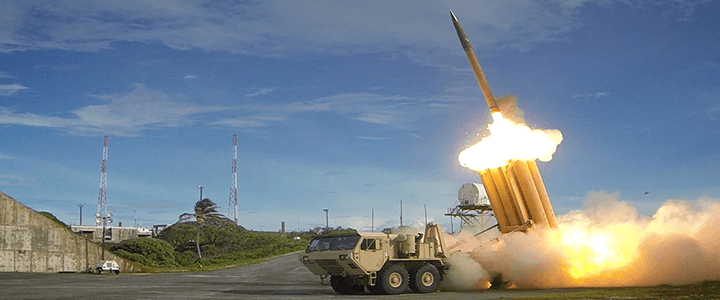For the second time in a month, Houthi rebels who hold the reins of power in Yemen have fired a missile at Saudi Arabia’s capital Riyadh. And for the second time in a month, the Saudis claim to have shot it down. For their part, the Houthis admit firing the missile and claim it was aimed at a royal palace. For more than two years now, Saudi Arabia has been leading the coalition to restore the Yemeni government displaced by the Houthi rebels.
The Saudis had better hope, for all our sakes, that they are right about their successful intercept. The credibility of the U.S. missile defense program is on the line.
A successful missile defense… or was it?
I hate being in the position of being skeptical about missile defense. After the November missile attack on the Riyadh airport, The New York Times undertook a fairly detailed—and fairly convincing—investigation which concluded that the Saudi Patriot battery likely missed the incoming missile completely, and its warhead landed so close to the King Khalid International Airport’s passenger terminal that “customers jumped out of their seats.”
This by itself is hardly damning evidence. A missile knocked off course could still result in an explosion on the ground. And explosions, even “smaller” ones, are loud and scary as hell. In early 2003, a would-be car bomber accidentally detonated his device mid-construction almost a mile from my hooch in Afghanistan. The explosion, although probably larger than that produced by a missile warhead, rattled the windows and walls so hard we thought an al Qaeda rocket had landed just a few meters from the building.
The missile experts who led the investigation for the Times have their biases. Stating flatly that “Governments lie about the effectiveness of these systems. Or they’re misinformed,” as one of the Times’s experts did, hardly engenders confidence in the investigation’s objectivity.
But they still laid out a compelling case that the trajectory of the incoming missile, the location of the Patriot battery, the location of debris, and the detonation near the passenger terminal all pointed to a miss. This isn’t good news for the missile defense business at a time when Saudi Arabia is poised to spend up to $15 billion on the THAAD system, the Trump administration is asking Congress for a supplemental appropriation of $4 billion for additional interceptors, and people like me are trying to reassure nervous friends and relatives that between GMD, Aegis, Aegis Ashore, and THAAD, the United States is well protected against a North Korean attack.
straight talk on intercept success
We all depend on accurate information. We can’t all go to Saudi Arabia to look at debris fields and battery emplacement, whip out a slide rule, and determine whether the Saudi government it telling the truth or not. I would have been far more impressed with the Saudis if they’d said, “we missed, but we know why, and we have a plan to fix it,” rather than lying… if that’s what they did.
I’ve staked-out a fairly clear position that missile defense is real, viable, and worth the investment. My faith in the technology would not have been shaken by one failed Scud intercept in the Saudi desert. No one else’s should be either, although I’m not naive enough to believe that those truly opposed to missile defense would give it any benefit of any doubt.
We should all demand that the information a government—any government—releases about an incident like a missile attack and intercept be truthful. Withhold what you must in the name of security, but don’t tell us that you intercepted a missile when it flew over your heads, apparently landing pretty darned close to its intended target.
Even Nixon learned the lesson that getting caught in the lie is far worse than admitting a mistake.




